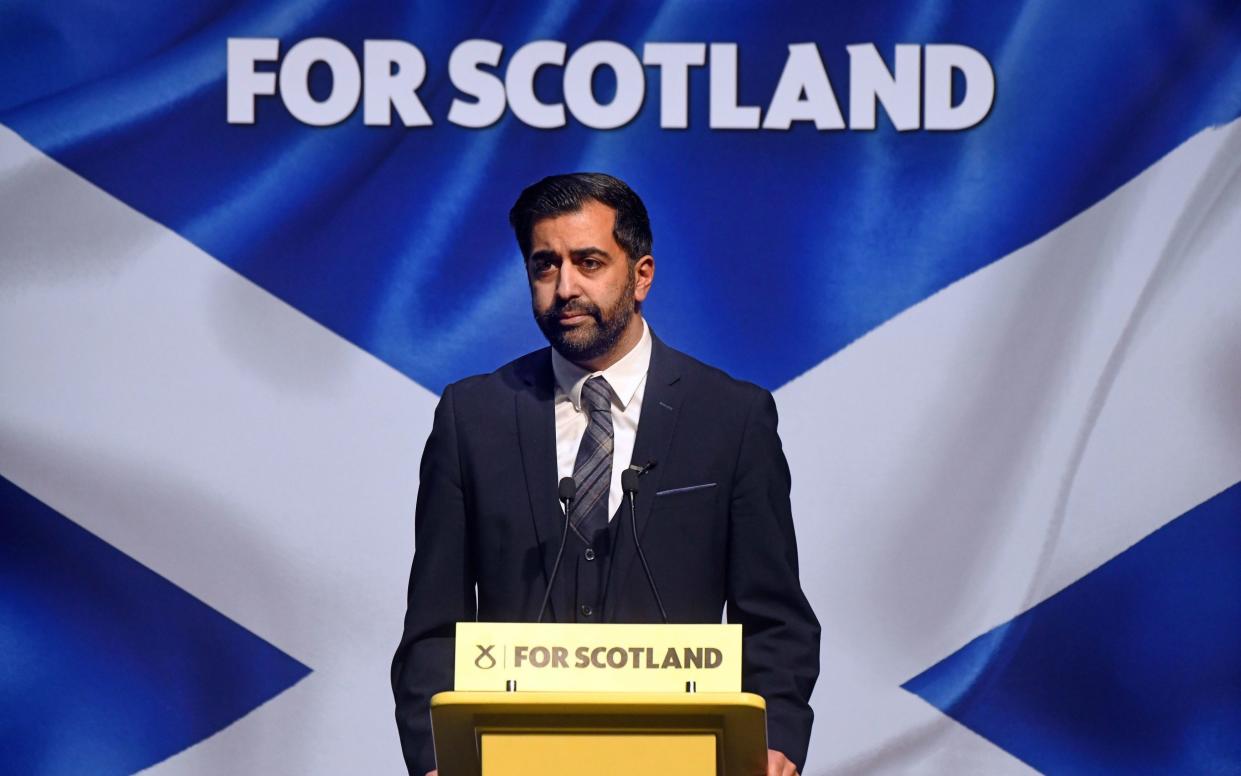Is Labour going to cause the collapse of the SNP in the general election?

Sir Keir Starmer’s hopes of becoming Prime Minister have been given a significant boost by a Labour renaissance in Scotland, with polls predicting the general election will spell the end of a decade of SNP dominance.
Since the 2014 referendum, the SNP has benefited at the ballot box from the polarisation in Scottish politics between those who backed and opposed independence.
Thousands of new independence supporters had previously backed Labour but swung en masse behind Nicola Sturgeon’s SNP.
In contrast, opponents of independence divided their general election support between the Tories, Labour and Liberal Democrats. This delivered a swathe of seats for the Nationalists thanks to the first past the post system.
The SNP won 48 out of 59 Scottish seats in the 2019 election, compared to only one for Labour, but polls indicate the Nationalists are on course to lose at least half of these at the next election.
With little prospect of another referendum being held any time soon, the link between a voter’s stance on independence and how they cast their ballots in elections has been weakened. A total of 57 seats will be contested following boundary changes.
Momentum has also shifted massively in Labour’s favour since Ms Sturgeon suddenly resigned as First Minister and SNP leader in February 2023. This removed her party’s most potent electoral weapon thanks to her ability to attract centre-left Scots.
Two months later, police raided the home she shared with Peter Murrell, her husband and the SNP’s former chief executive, as part of a long-running investigation. A luxury motorhome was confiscated from outside her mother-in-law’s home.
The couple were arrested and released without charge pending further investigations. Although Ms Sturgeon has said she is innocent of any wrongdoing, Police Scotland’s long-running inquiries are still continuing and threaten to unsettle the election.
Humza Yousaf’s unpopularity a boost to Labour
In addition, polls indicate Humza Yousaf, Ms Sturgeon’s successor, is far more unpopular with the Scottish public, with consistently negative approval ratings.
The general election will be Mr Yousaf’s first test in a national election. However, last year’s Rutherglen and Hamilton West by-election caused panic in the SNP when an astonishing 20.4 per cent of votes swung to Labour.
Sir John Curtice, the UK’s most eminent psephologist, said a similar swing nationwide would see Labour win 42 seats in a major boost for Sir Keir’s hopes of becoming prime minister.
Although national polls conducted since the October by-election do not suggest this will happen, there is no doubt Labour are confident of making major in-roads in its former Glasgow and west of Scotland heartlands.
Independence supporters ‘lend’ votes to Labour
Anas Sarwar, the Scottish Labour leader, is appealing to Yes supporters to “lend” their voters to Labour in the election to get the Tories out of Downing Street, even if they have not dropped their support for independence.
Mr Yousaf is pointing to Labour’s large lead in the polls as evidence a Starmer victory is a fait accompli, arguing Scots who want to oust the Tories can still safely vote SNP.
He is also attempting to shore up the SNP’s core vote and stop more independence supporters deserting the party by changing the logo that will appear on the general election ballot paper.
The new logo features the SNP’s usual looped ribbon emblem but features updated text at the bottom explicitly linking a vote for the party with backing for separation.
Applications for two versions have been registered with the Electoral Commission for the election, one stating “SNP for independence” and the other just “SNP independence”.
The move is a marked departure from the Nationalists’ strategy in previous elections, where Ms Sturgeon argued that Scots who opposed independence should still vote for her party.
Strategists argue it makes electoral sense as support for independence is running at around 45 per cent, whereas backing for the SNP is only in the mid-30s in most polls.
But, even though it is a Westminster election, the SNP’s troubled domestic record in power at Holyrood is also threatening to damage their support.
Senior Scottish Tory insiders said that voters on the doorstep in some of the seats they are targeting view the SNP as the incumbents rather than their party. The Nationalists have been in power since 2007.
They claim voters are determined to give the SNP a bloody nose in protest at their administration of Scotland’s struggling NHS and education system, and the higher taxes north of the border.
Unlike the rest of the UK, the Tories were hopeful of making gains in Scotland, increasing their tally of six seats from the 2019 contest by taking advantage of the collapse in support for the SNP.
They had targeted the North East of Scotland in particular, where they had hoped their backing for further oil and gas exploration in the North Sea would win them support among thousands of workers in the industry concerned about Labour and SNP proposals to curtail it.
However, the Chancellor’s Spring Budget decision to extend the oil windfall tax caused anger and dismay in the Scottish Tories that has damaged their election chances.



